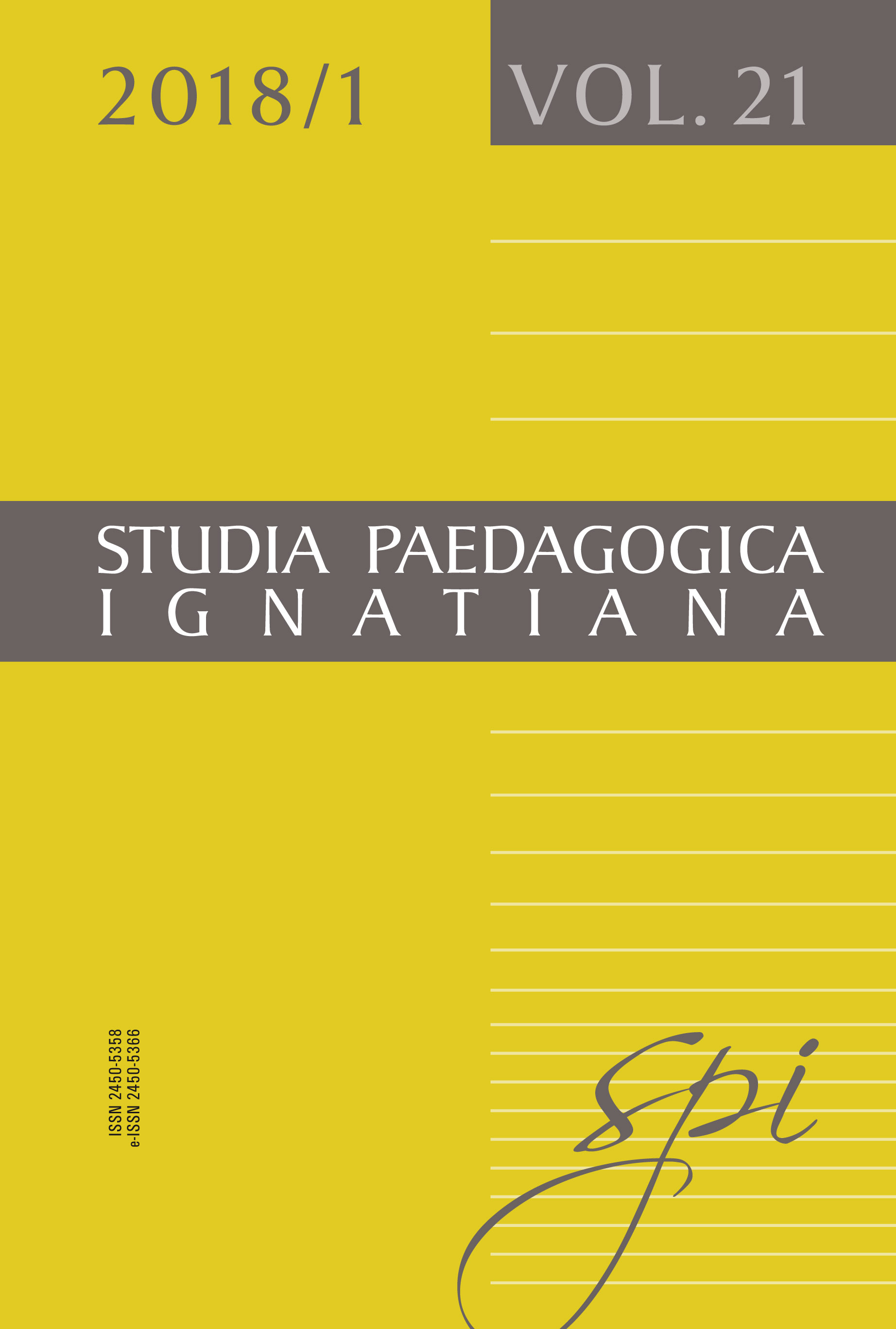Charakterystyka pacjentów przerywających stacjonarną terapię uzależnień uzyskana na podstawie analizy dokumentów medycznych
DOI:
https://doi.org/10.12775/SPI.2018.1.009Słowa kluczowe
terapia, uzależnienie od alkoholu, alkohol, stacjonarne leczenie, resocjalizacjaAbstrakt
Osoby uzależnione od alkoholu często nie kończą podejmowanego leczenia psychoterapeutycznego. O ile w leczeniu ambulatoryjnym pacjenci stale narażeni są na działanie czynników mogących utrudnić utrzymanie abstynencji i dokończenie leczenia, o tyle osoby leczące się w ośrodkach stacjonarnych doświadczają powyższych czynników w zredukowanym wymiarze. Pomimo tego, znaczny odsetek pacjentów nie kończy programów terapeutycznych realizowanych w ośrodkach stacjonarnych. Celem podjętych badań było dokonanie charakterystyki osób przerywających stacjonarną terapię uzależnień od alkoholu. Wykorzystano w tym celu dane dostępne w historiach choroby pacjentów. Dane empiryczne uzyskano analizując dokumentację medyczną – historie choroby pacjentów uzależnionych od alkoholu przebywających w ciągu jednego roku w stacjonarnym oddziale odwykowym i podejmujących podstawowy program terapii uzależnień. Uzyskane wyniki wskazują, że osoby z grupy badawczej w znacznym odsetku (27,6%) nie kończą podejmowanego leczenia stacjonarnego. Mężczyźni statystycznie częściej od kobiet przerywali terapię, ponadto osoby niekończące terapii często żyją samotnie (kawalerowie, rozwodnicy i panny). Kończeniu terapii nie sprzyja obecność zaburzeń i chorób psychicznych (depresji, halucynozy alkoholowej przy przyjęciu do szpitala, schizofrenii i choroby afektywnej dwubiegunowej). Wśród pacjentów rezygnujących ze stacjonarnej terapii uzależnień najczęściej były osoby, które wcześniej jednorazowo podejmowały próbę terapii odwykowej. Warto poszerzać i uelastyczniać ofertę programów terapeutycznych ośrodków stacjonarnych, uwzględniając trudności i deficyty osób niekończących terapii. W psychoterapii należy korzystać z metod i technik podtrzymywania motywacji pacjentów do dokonywania zmian.
Bibliografia
Fudała J., Pacjenci uzależnieni od różnych substancji psychoaktywnych w całodobowych oddziałach terapii uzależnienia od alkoholu na przykładzie pacjentów leczonych w WOTUW Pruszków, „Świat Problemów” 2003, nr 12, s. 8–14.
Głowik T., Ewaluacja terapii, „Terapia Uzależnienia i Współuzależnienia” 2008, nr 1, s. 9–12.
Merrington S., Stanley S., Effectiveness: Who counts what?, w: Handbook of probation, red. L. Gelsthorpe, R. Morgan, Willan Publishing, Devon 2007, s. 428–458.
Mellibruda J., Sobolewska-Mellibruda Z., Integracyjna terapia uzależnień. Teoria i praktyka, Instytut Psychologii Zdrowia, Polskie Towarzystwo Psychologiczne, Warszawa 2006.
Miller W., Forcehimes A., Zweben A., Terapia uzależnień. Podręcznik dla profesjonalistów, przeł. M. Cierpisz, Wydawnictwo UJ, Kraków 2014.
Pilch T., Bauman T., Zasady badań pedagogicznych. Strategie ilościowe i jakościowe, Wydawnictwo Akademickie „Żak”, Warszawa 2001.
Rada Ministrów RP, Sprawozdanie z realizacji ustawy o wychowaniu w trzeźwości i przeciwdziałaniu alkoholizmowi w okresie 1 stycznia – 31 grudnia 2009 roku, Warszawa 2011, <http://www.parpa.pl/images/image/sprawozdanie2009.pdf>.
Świątkiewicz G., Rozpowszechnienie zaburzeń związanych z alkoholem, w: Kondycja psychiczna mieszkańców Polski. Raport z badań „Epidemiologia zaburzeń psychiatrycznych i dostęp do psychiatrycznej opieki zdrowotnej – EZOP Polska”, red. J. Moskalewicz, A. Kiejna, B. Wojtyniak, Instytut Psychiatrii i Neurologii, Warszawa 2012, s. 254–262.
Yalom I., Leszcz M., Psychoterapia grupowa, przeł. R. Andruszko, Wydawnictwo UJ, Kraków 2006.
Pobrania
Opublikowane
Jak cytować
Numer
Dział
Licencja
Autor zgłaszając swój artykuł oświadcza, że:
jest Autorem artykułu (zwanego dalej Utworem) i:
- przysługują mu wyłączne i nieograniczone prawa autorskie do Utworu,
- jest uprawniony/a do rozporządzania prawami autorskimi do Utworu.
Udziela Uniwersytetowi Ignatianum w Krakowie nieodpłatnej, niewyłącznej, nieograniczonej terytorialnie licencji do korzystania z Utworu na następujących polach eksploatacji:
- utrwalania utworu w formie papierowej, a także na nośniku cyfrowym lub magnetycznym;
- zwielokrotnienia utworu dowolną techniką, bez ograniczenia ilości wydań i liczby egzemplarzy;
- rozpowszechniania utworu i jego zwielokrotnionych egzemplarzy na jakimkolwiek nośniku, w tym wprowadzenia do obrotu, sprzedaży, użyczenia, najmu;
- wprowadzenia utworu do pamięci komputera;
- rozpowszechniania utworu w sieciach informatycznych, w tym w sieci Internet;
- publicznego wykonania, wystawienia, wyświetlenia, odtworzenia oraz nadawania i reemitowania, a także publicznego udostępniania utworu w taki sposób, aby każdy mógł mieć do niego dostęp w miejscu i czasie przez siebie wybranym;
- w zakresie praw zależnych do Utworu, obejmujących w szczególności prawo do dokonania koniecznych zmian w Utworze, wynikających z opracowania redakcyjnego i metodycznego, a także do dokonania tłumaczenia Utworu na języki obce.
Udzielenie licencji następuje z chwilą przekazania Utworu na rzecz Uniwersytetowi Ignatianum w Krakowie. Uniwersytet Ignatianum w Krakowie jest uprawniony do udzielania dalszych sublicencji do Utworu, w zakresie udzielonego prawa. Licencja jest ograniczona czasowo i zostaje udzielona na okres 15 lat, licząc od daty jej udzielenia.
Polityka prywatności
Statystyki
Liczba wyświetleń i pobrań: 815
Liczba cytowań: 0



